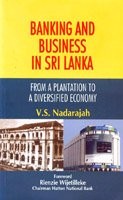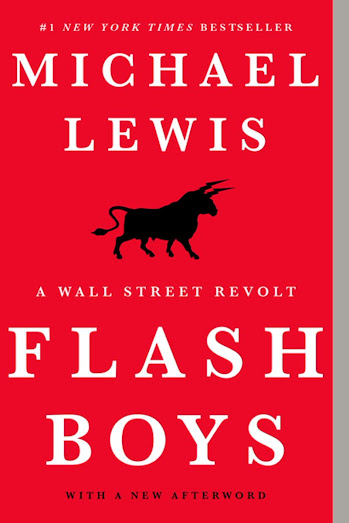One of my more popular posts was a summary of books I read the previous year. This is a similar post that provides brief summaries of books read in 2023. Many deserve longer reviews, but I like to read more than write these reviews, so these short blurbs will have to suffice.
Entangled Life - How Fungi Make Our Worlds, Change Our Minds & Shape Our Futures; Merlin Sheldrake Put first for a reason. It is one of the few nonfiction books I could barely put down. I was skeptical when my brother recommended it, but I was wrong. Mushrooms, lichen, and a whole lot more are covered in this easy-to-read and wonderfully researched book. How they help trees communicate, break down dead organisms, maybe the origin of life on earth, and much more. Don't miss the 50 pages of notes at the end that are equally interesting and shed even more insight into this subject. Highly recommended.
The Muslims of Sri Lanka, One-Thousand Years of Ethnic Harmony 900-1915; Lorna Dewaraja I became interested in this minority group after meeting several Muslim businesspeople in Colombo, and I got a lot out of this easy and insightful read on one of Sri Lanka's most important religious groups. While focusing on Muslim and Sinhalese relations, it provides insight into Sri Lankan history, society, and Buddhist ideals of tolerance and accommodation. It also reaffirms trade as being better than politics to bring people together, 'Unlike in India where Islam made its entry as a conquering proselytizing force, in Sri Lanka it appeared as the personal faith of a peaceful trading people who in the course of time earned the goodwill, confidence, and trust of the indigenous people.' Kudos to the author and publisher for producing this fine book, '...historians have traditionally been attracted by wars and rebellions whereas the peaceful co-existence of groups of people over long periods tends to be overlooked.'
Cairo, A Cultural and Literary History; Andrew Beattie A well-organized and very readable history of one of the world's oldest cities. Breaks Cairo's history into five eras with good details on each - Pharaonic, Christian and Jewish, Islamic, Colonial, and modern. Good reminder of the central role that the city and Egypt played in the earliest days of human civilization and Abrahamic religions (Jewish, Christian, Muslim). Highly recommended.
Banking and Business in Sri Lanka, From a Plantation to a Diversified Economy; V.S. Nadarajah Published in 2010, I got a lot out of this short book. It’s a concise history and summary of modern Sri Lanka's economy, politics, major industries, companies, and financial institutions. Highly recommended for those investing or doing business in Sri Lanka.
When Money Dies, The Nightmare of Deficit Spending, Devaluation and Hyperinflation in Weimar Germany; Adam Fergusson Blow-by-blow history of early 1920's German hyperinflationary period, which helped to pave the way for the Nazis. It's a depressing yet gripping read. Recommended, especially for those investing and doing business in high-inflation countries such as Argentina, Egypt, and Turkey.
The Futures, The Rise of the Spectacular and the Origins of the World's Biggest Markets; Emily Lambert Readable history of the Chicago Mercantile Exchange and the Chicago Board of Trade. Their competitiveness and flexibility ultimately created the world's largest commodity exchange.
Governing the Ungovernable, Institutional Reforms for Democratic Governance; Ishrat Husain Written by the former governor of the country's central bank, the State Bank of Pakistan, this is a good summary of the key institutions in Pakistan and why their weakness is preventing the country from advancing further and faster. The author notes that the military is the one institution that's professional and well-organized, which means it will likely continue to rule Pakistan somehow. Good read on understanding the world's fifth-largest country by population.
Fragile Cargo; Adam Brooks An exciting history of saving a large portion of China's imperial art collection during a chaotic period of rebellions, warlords, colonialism, civil war, clashing ideologies, and World War II. Its back cover blurb sums up the book well, "16 Years, 15,000 Miles, 250,000 Works of Art". The author's first non-fiction book makes this history book very readable. Hollywood should make it into a movie.
One Up on Wall Street; Peter Lynch I finally got around to reading this investment classic. It is good and highly readable, with insights for professional and non-professional investors. I like the author’s focus on companies rather than the market, his preference for long-term fundamentals over short-term trading, and his contrarian mindset. Full of great quotes and wisdom. "The trick is not to learn to trust your gut feelings, but rather discipline yourself to ignore them'. 'Pick the right stocks, and the market will take care of itself,' 'Several of my favorite ten baggers made their biggest moves during bad markets.'
The Struggle for Egypt; From Nasser To Tahrir Square; Steven A. Cook. The first 2/3rds provide a decent enough history of modern Egypt. It reconfirmed my impression of the country after a trip to Alexandria...not much has changed since the end of the British Era. "It was a system founded in the ideological and power politics of the early 1950s when the Free Officers discovered they could dispose of their opponents through non-democratic laws, rules, regulations, and decrees."
When McKinsey Comes to Town; Walt Bogdanich and Michael Forsythe Easy to read book on helping the rich and powerful to make even more by gaming people and the system. If there’s a global elite, McKinsey is their champion. The chapter on how they helped pump up opioid sales in the US is particularly alarming and depressing. McKinsey management says they'll do better, but ultimately, they shill for money. Cronyism Western style
Midnight in Cairo, The Female Stars of Egypt's Roaring '20s; Raphael Cormack Interesting summary of female stage actors and personalities when Cairo and Alexandria were more international than today and the center of the Arab-speaking world. It is a good reminder that Egypt is more than just pyramids and ancient Pharaonic artifacts. It's a bit of a narrow topic for me, though.
The Story of Ceylon Teamaker; Merrill J. Fernando Ok autobiography of one of Sri Lanka's wealthiest people. Mr. Fernando created and built the country's best-known brand, Dilmah Tea. Unlike blended lower-quality bulk products, Dilmah produces and sells high-quality single-origin Sri Lankan tea. He was obsessed with keeping the value-adding processes like blending, packaging, and marketing within Sri Lanka. Mr. Fernando passed soon after the book's publication in May 2023 at age 97.























